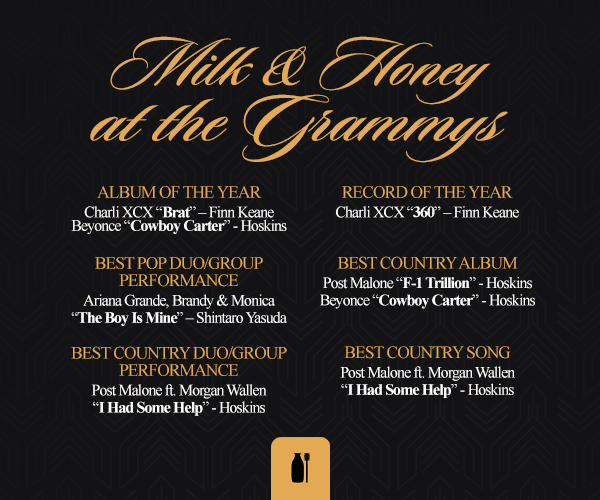In the age of music streaming, artists are seeing their fan bases grow globally, and that’s causing them to expand their world tours, Live Nation President and CFO Joe Berchtold says.
Speaking at BofA Securities’ Media, Communications and Entertainment Conference in New York on Wednesday (September 4), Berchtold said that, looking over tours that Live Nation has promoted and/or its subsidiary Ticketmaster has sold tickets for, he’s noticed a 20% to 50% increase in the dates that artists are adding to tours – and it’s “really almost all international dates.”
“Ten years ago, the conversation was, ‘Let’s talk about the US tour, maybe some European dates.’ Now it’s ‘Hey, let’s talk the three-year plan. What’s the role of the US, Europe, Latin America? Do we do Asia? Where do we do festivals in there, versus tours?’” Berchtold said.
“So the conversations are much more extended, and in particular, the international legs are a lot longer.”
Berchtold attributes this to an increasingly global music fan base, made possible by streaming services which give listeners access to music instantly the world over. And more recently, social media platforms have become major amplifiers of artists’ works.
“On the demand side [there] is a shift from the record companies as the determinants of distribution to… the global distribution with the Spotifys, Apple Musics, the streaming platforms to make sure content is delivered everywhere, simultaneously, globally,’ Berchtold said, describing this as the trend between 2005 and 2019.
“Then the further acceleration you’ve seen – over the past five or six years – is… the social platforms as a point of discovery. So now they’re able to discover the artist on Tiktok, Instagram, the social media platforms. And… I think that’s given another leg of acceleration in terms of that global growth.”
To illustrate the scale of that growth, Berchtold pointed to another statistic: Over the past decade, Live Nation has seen a 2.5-fold increase in the number of touring acts that have sold 100,000 or more tickets.
“In 2015, we had about 90 artists that we sold over 100,000 tickets for… That number, by 2019, had grown to about 150 [or] 155. This year, we expect that number to be about 250,” Berchtold said.
While the biggest acts will typically sell more than 500,000 tickets for a tour, Berchtold said the 100,000-plus segment is an indicator of future “supply” – that is, how many up-and-coming acts are in the pipeline today, some of which will be the major stadium tours of tomorrow.
The numbers show the “robustness of the supply that’s continuing to grow on a global basis,” Berchtold said.
Live Nation reported its “biggest year ever” in 2023, with the company banking $22.7 billion in revenue, up 36% YoY. Its concerts business saw a 39% YoY revenue spike, to $18.7 billion, while its ticketing business (Ticketmaster) generated $2.9 billion, up 32% YoY.
That growth has slowed somewhat this year – its revenues in Q2 2024 were up 7% YoY – as this year is proving to be somewhat slower, versus 2023, in terms of major stadium tours.
However, during his Q&A session at the BofA conference, Berchtold reiterated his expectation that 2025 will see a resurgence in stadium activity.
2025 is “shaping up to be a bit of the best of both worlds, where we see very strong growth in our stadium volume, but also continued growth in our arena volume at this point,” he said.
Here are three other things we learned from Berchtold’s appearance at the BofA conference:
1. Live Nation’s antitrust trial could start in early 2026
Much of the news surrounding Live Nation in recent months has centered on the antitrust lawsuit brought against the company by the US Department of Justice, which – along with the attorneys general of 39 states and the District of Columbia – is asking the court to separate Ticketmaster from its parent company.
Live Nation has vigorously defended itself against the claim that its practices violate antitrust laws and disadvantage consumers. It has argued – both before and after the DoJ’s suit – that it’s not responsible for consumers’ biggest gripe against the company, that is, ticket prices. Artists, sports teams and other performers set prices themselves, Live Nation has argued.
“[The complaint] blames concert promoters and ticketing companies — neither of which control ticket prices — for high ticket prices,” Live Nation said in its public response to the DoJ suit.
“It ignores everything that is actually responsible for higher ticket prices, from increasing production costs to artist popularity, to 24/7 online ticket scalping that reveals the public’s willingness to pay far more than primary tickets cost.”
“I expect we’re going to prevail. I don’t expect we’re going to have major changes to how we operate through the process we have to go through with the DoJ.”
Joe Berchtold, Live Nation
At the BofA conference, Berchtold reiterated his company’s stance that it expects to emerge victorious from the legal battle.
“I expect we’re going to prevail. I don’t expect we’re going to have major changes to how we operate through the process we have to go through with the DoJ,” Berchtold said.
And he provided something of a timeline for when we can expect the case to go to trial – if, indeed it does go to trial.
“I think next year [will be] a period of discovery and depositions, and then the trial would begin in early ’26, if nothing between now and then happens that would let us come to an agreed resolution.”
2. Market segmentation is how Live Nation plans to increase its margins
In the search for bigger profit margins, Live Nation has settled on a strategy: Market segmentation. In essence, that means getting to know customers well enough to know who’s willing to pay more for a more premium experience.
Part of that strategy is dynamic pricing – the practice of adjusting ticket prices in real time in response to demand. That’s proven to be controversial with fans on a number of occasions, most recently with the sale of tickets to Oasis’ reunion tour in the UK and Ireland next year, which went on sale last weekend.
Very high demand for those tickets resulted in prices spiking as high as GBP £350 ($460), up from an initial price of £135 ($177).
Outraged fans complained, and now Oasis is distancing itself from the practice, but Live Nation has long defended dynamic pricing, arguing that the secondary ticket market (i.e. scalpers, etc.) proves that some segment of the audience is willing to pay much more for tickets than what they’re sold for – and that means artists are leaving money on the table.
“It’s all about that segmentation, and just making sure you’re creating the opportunities for people to make the selection themselves.”
Joe Berchtold, Live Nation
But for Live Nation, market segmentation goes a lot further than just dynamic pricing – it means stratifying the price of the event-going experience in as many ways as possible – right down to the cost of parking.
“You have different levels of parking now generally in all of our amphitheaters,” Berchtold said at the BofA conference. “If you want to do [general assignment] parking, you got to walk for a while.”
For those willing to pay more, there’s “VIP parking… valet parking… platinum parking…” Berchtold explained. “You charge what the market is going to bear.”
Once inside the venue, the question becomes “do you want a very nice VIP club, where you can sit down and have dinner, air conditioning, [do] you want just a mid-level club, where it maybe has a separate bar, no lines for the bathrooms, calmer setting with a little bit of shade? Do you want to sit in the box? Do you want to be in the pit? Do you want to be in the VIP area in the pit? Do you want to be on the lawn?”
Added Berchtold: “It’s all about that segmentation, and just making sure you’re creating the opportunities for people to make the selection themselves.”
3. No sign of consumer slowdown when it comes to live events
A number of retailers have recently announced store closures and layoffs, saying they’re seeing signs of a consumer slowdown, two years after interest rates began to bite the economy.
We’ve had recent store closure announcements from department store chain Macy’s and discount retailer Big Lots. Restaurant chains appear to have been hit even harder, with closures at major chains like TGI Fridays, Red Lobster and Applebee’s.
But Live Nation’s execs have been saying on recent earnings calls that they’re not seeing any signs of a slowdown when it comes to demand for live events.
“If you think about that event, how memorable it is, those are the things you’re still talking about with your friends a couple of months later.”
Joe Berchtold, Live Nation
At the BofA conference, Berchtold attributed this strength to the idea that live events are better value for money than many other experiences.
“We have a business where two-thirds of our tickets are under $100, one third of them are under $50. The pricier ones will get some press, but the vast majority are very affordable,” Berchtold said.
“And if you think about [how a] typical fan goes to one or two concerts a year. If you think about that event, how memorable it is, those are the things you’re still talking about with your friends a couple of months later…
“You can spend, if you want to, the same amount on going out to dinner on [a] Friday night with your wife… But [a concert is] just much more memorable.”
Berchtold said that Live Nation monitors sales obsessively whenever a tour goes on sale – “believe me, we’re paranoid every day” – but there are simply no signs of trouble.
“We’re not seeing issues,” he said.Music Business Worldwide





